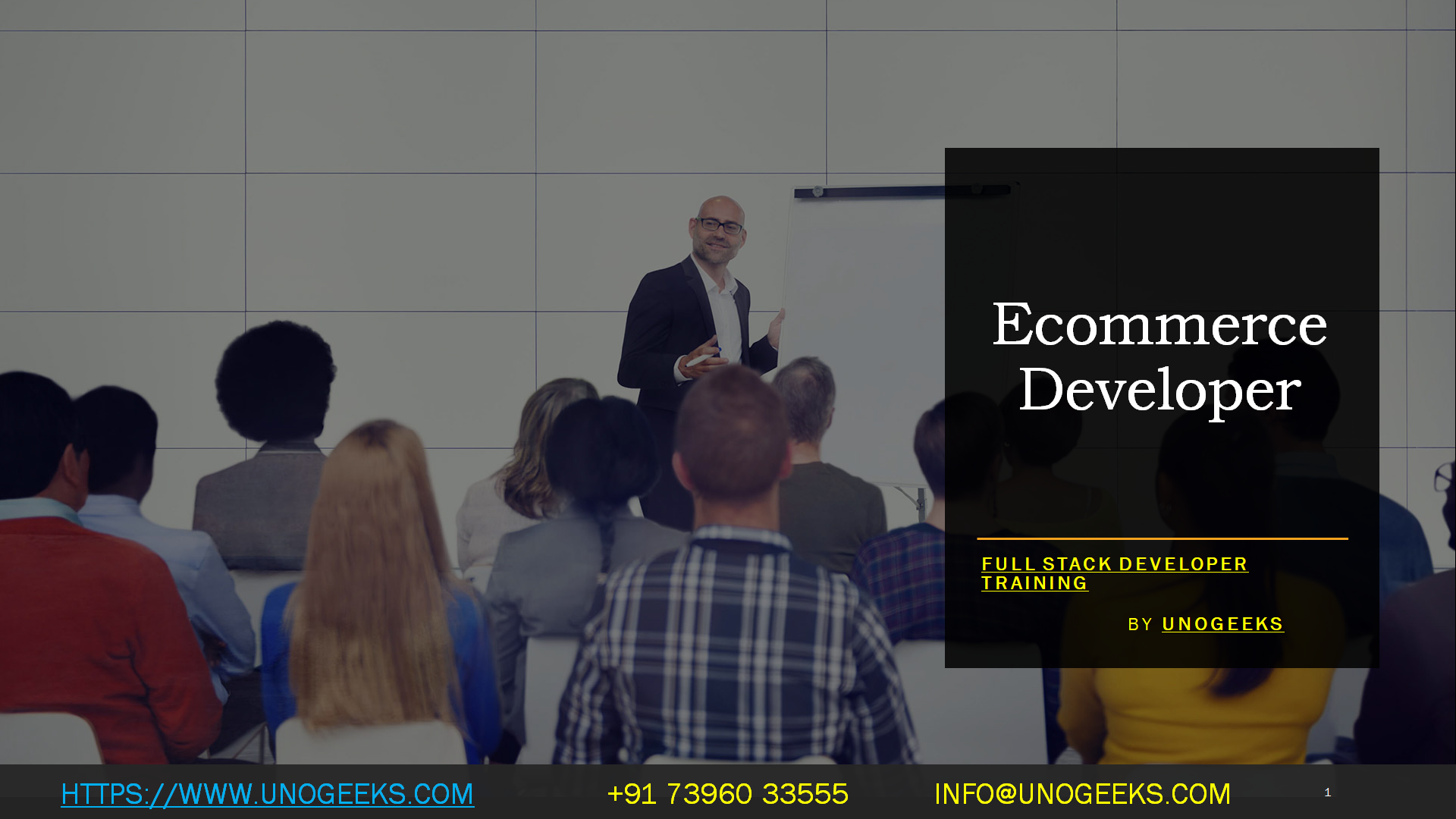Ecommerce Developer
An Ecommerce Developer is a professional specialized in creating and managing online stores and other types of e-commerce platforms. They are responsible for designing, developing, and maintaining a website that allows businesses to sell products or services online. Here’s an overview of the roles, skills, and technologies typically associated with an Ecommerce Developer:
Web Development Skills:
- Proficiency in web development languages like HTML, CSS, and JavaScript.
- Experience with server-side languages such as PHP, Ruby, Java, or Python.
- Familiarity with database management using systems like MySQL, PostgreSQL, or MongoDB.
Ecommerce Platforms:
- Expertise in popular e-commerce platforms like Magento, Shopify, WooCommerce (for WordPress), BigCommerce, or custom-built solutions.
- Ability to customize and extend these platforms to meet specific business requirements.
User Experience and Design:
- Knowledge of user experience (UX) principles and web design to create an effective and engaging online shopping experience.
- Understanding of responsive design practices to ensure the site is accessible on various devices.
Shopping Cart Integration:
- Implementing and managing shopping cart functionality, including product listing, pricing, checkout processes, and inventory management.
Payment Gateway Integration:
- Integrating payment processing solutions to handle transactions securely, including credit cards processing, PayPal, Stripe, and other payment systems.
Security Considerations:
- Ensuring the security of the e-commerce site, particularly in handling customer data and payment information. This includes compliance with standards like PCI DSS.
SEO and Performance Optimization:
- Implementing search engine optimization (SEO) best practices to improve the visibility of the online store.
- Optimizing site performance for faster load times, which is crucial for retaining customers and improving the user experience.
Analytics and Reporting:
- Setting up tools like Google Analytics for tracking user behavior, sales performance, and other key metrics.
- Analyzing data to provide insights into website performance and opportunities for improvement.
Customer Service Integration:
- Integrating customer service tools and systems, including live chat, email support, and customer feedback mechanisms.
Mobile Commerce:
- Ensuring the e-commerce platform is optimized for mobile devices, considering the growing trend of mobile shopping.
Continuous Learning:
- Keeping up to date with the latest e-commerce trends, technologies, and best practices.
Full Stack Developer Training Demo Day 1 Video:
Conclusion:
Unogeeks is the No.1 IT Training Institute for Full Stack Developer Training. Anyone Disagree? Please drop in a comment
You can check out our other latest blogs on Full Stack Developer Training here – Full Stack Developer Blogs
Please check out our Best In Class Full Stack Developer Training Details here – Full Stack Developer Training

———————————-
For Training inquiries:
Call/Whatsapp: +91 73960 33555
Mail us at: info@unogeeks.com
Our Website ➜ https://unogeeks.com
Follow us:
Instagram: https://www.instagram.com/unogeeks
Facebook:https://www.facebook.com/UnogeeksSoftwareTrainingInstitute
Twitter: https://twitter.com/unogeeks
